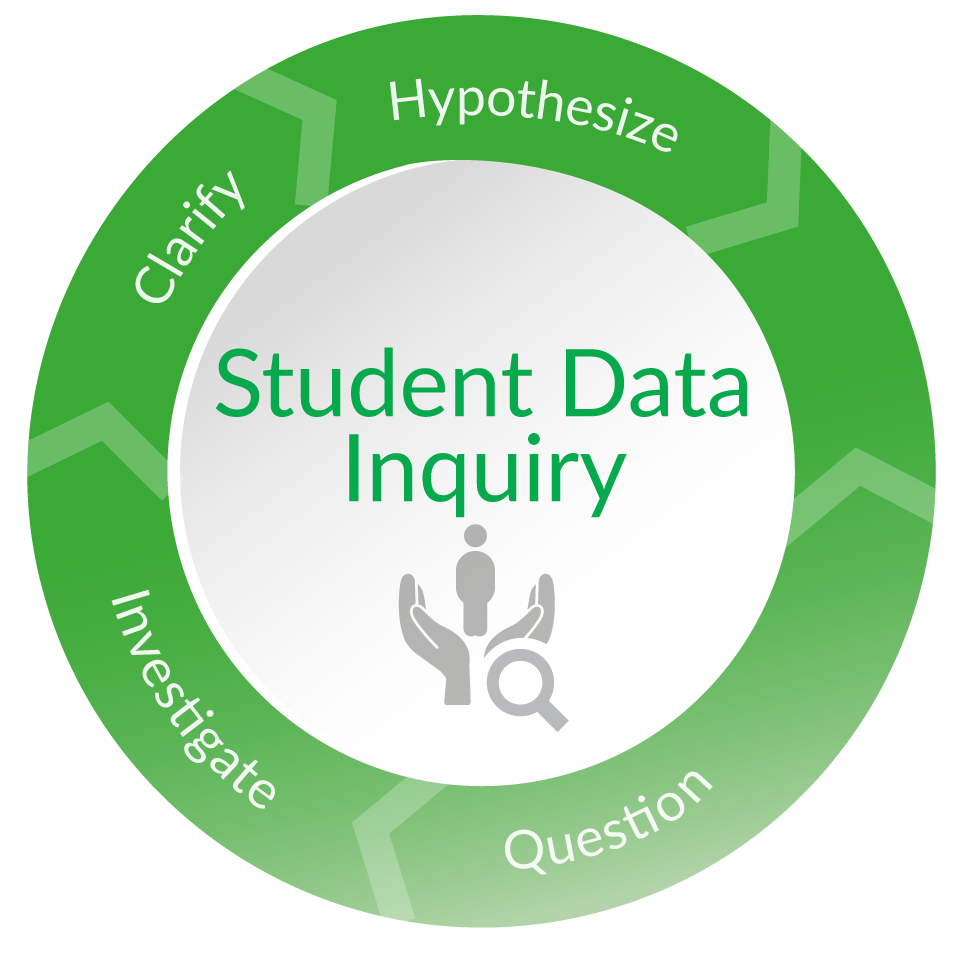
The first part of the data inquiry process begins a comprehensive needs assessment which guides teams through four steps to question, investigate, clarify and hypothesize about student data. Educators may focus on a preliminary finding from state assessments, program evaluations, the state report card or a federal notification.
WISExplore recommends selecting an area of focus for inquiry, such as: Literacy, Math/STEM, College/Career Readiness or Student Engagement. The focus for inquiry may be determined by an equity concern, a curriculum review cycle or a district's strategic plan.
Student Data Inquiry Includes Four Steps:
1. Question: Teams ask questions about overall performance, equitable performance, and content detail. They may examine proficiency attainment and academic growth. The Data Inquiry Planning Guide may be used to assist in planning for student data inquiry.
2. Investigate: Teams locate the data that best answers their inquiry questions. Three types of student data may be investigated from local and state sources including: achievement data from strategic assessments, perceptions data, and engagement data.
3. Clarify: After data has been investigated and captured, teams discuss data findings, clarify the data and determine priority outcomes for further action. This is where a long-term goal for student success is developed.
4. Hypothesize: Based on the priority outcome for students, teams pose hypotheses of educator practices to determine likely root causes for results.
Student Data Inquiry Learning Module
This module provides an interactive training focused on inquiry into student data as a part of a comprehensive needs assessment.
Using WISEdash for Inquiry Overview
This brief video describes how the WISEdash for Districts tool can be used for multiple purposes in data investigation and school improvement planning.
Tools
- Fishbone Diagram - Template featuring the student outcome priority as the head of the fish and MLSS features as the ribs.
- Influencer Circle for Prioritizing Hypotheses of Root Cause - Guides teams to prioritize the likely root cause that has the greatest influence on other root causes.
- Root Cause Process Brief -
- Root Cause Process Module - Learning module outlining the root cause analysis process.
- Root Cause Quality Self-Check - A series of questions to assist a team in verifying alignment of the highest likely root cause.